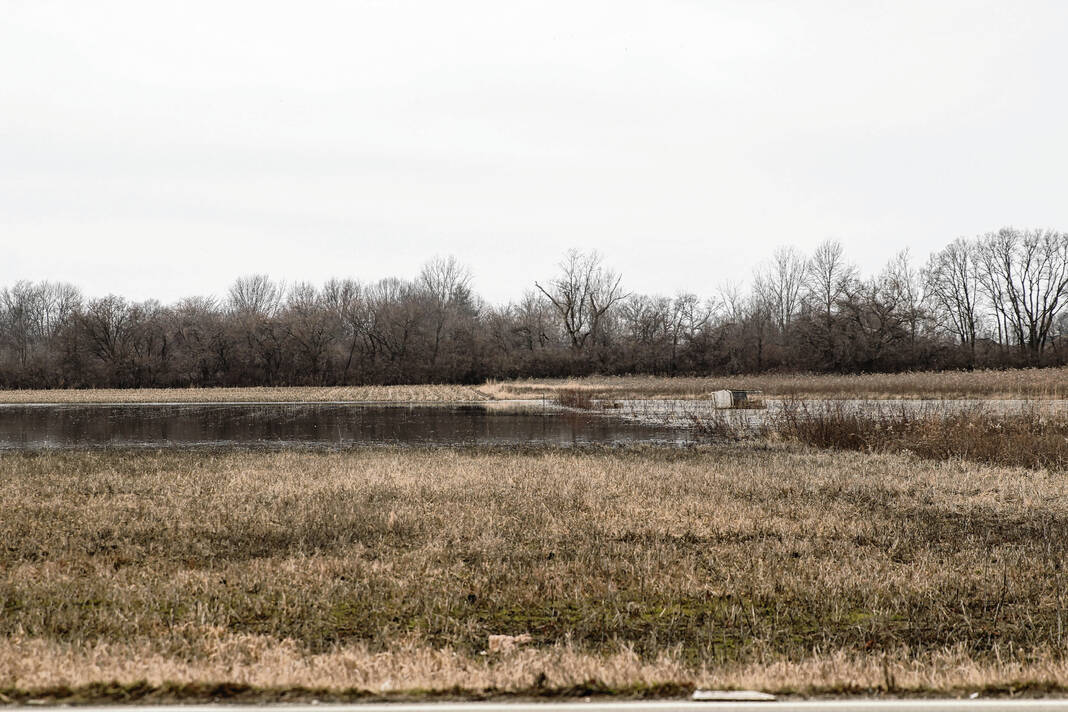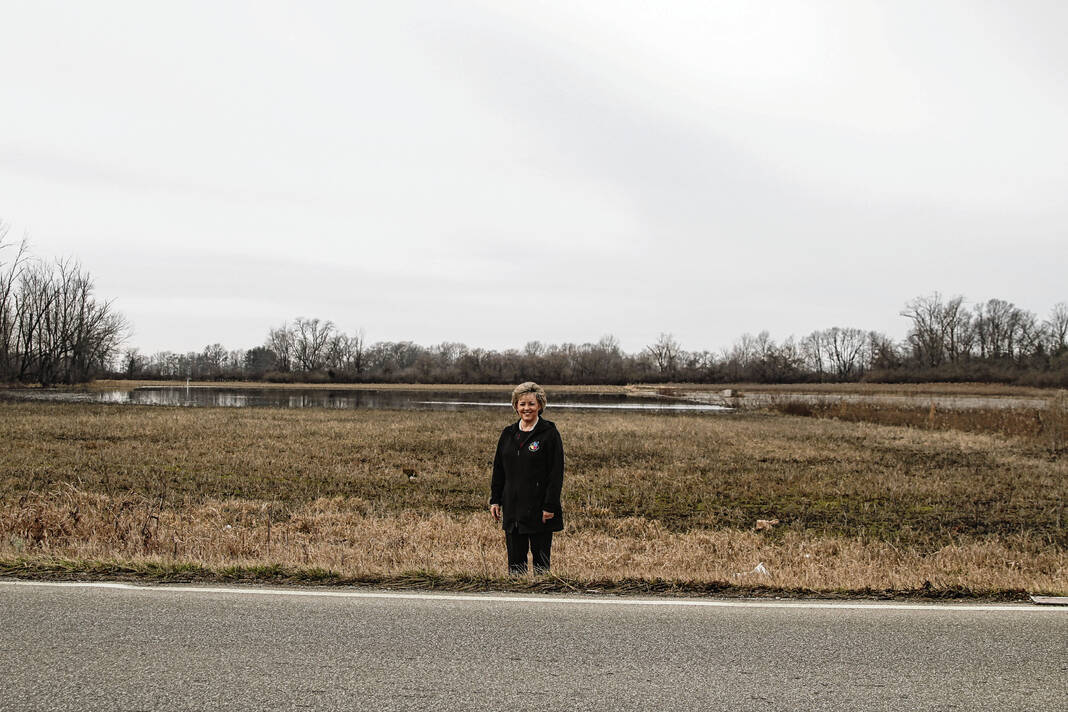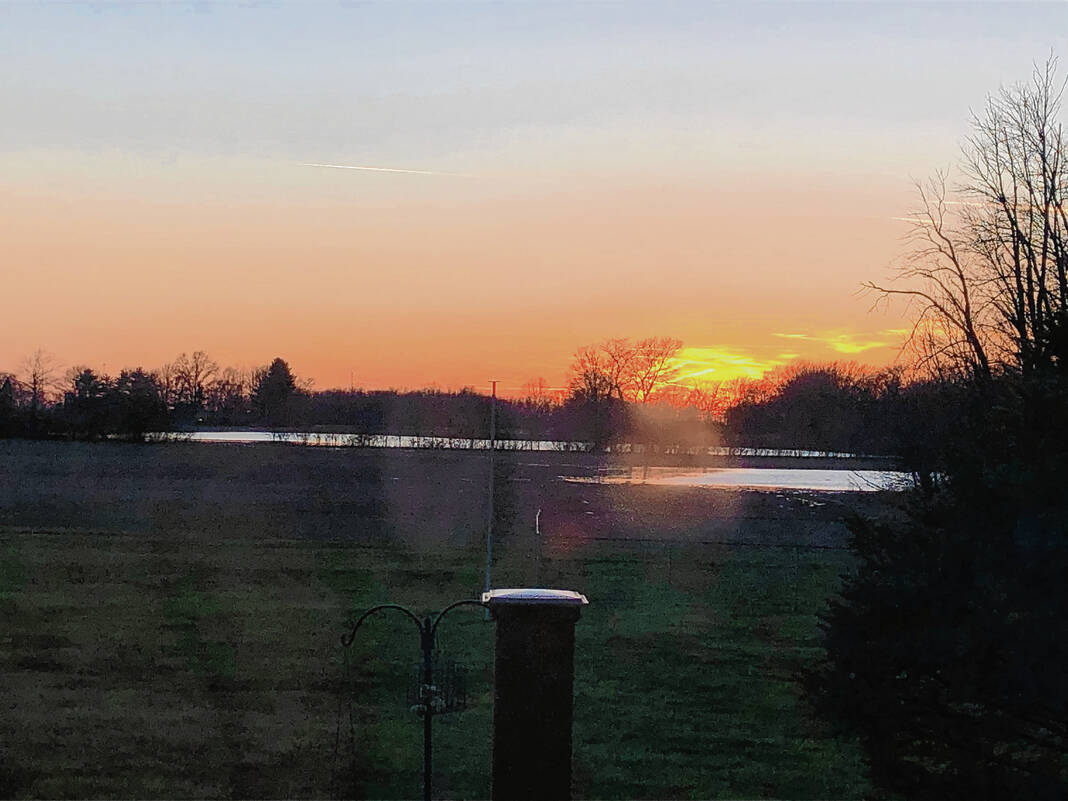A controversial bill that would strip wetland protections in Indiana is the first to head to the governor’s desk after being fast-tracked by the Indiana General Assembly.
House Bill 1383, authored by Rep. Alan Morrison, R-Versailles, clarifies various wetland definitions and eliminates certain wetland rule-making requirements. The bill would shift some Class III wetlands down to Class II, a class that already has few protections because of another state law passed in 2021.
The Senate approved the bill 32-17 on Tuesday, less than a month after its first reading in the House. Some residents, environmentalists and state senators have expressed concerns that it was fast-tracked despite heavy opposition.
Environmental activists and some state legislators also questioned whether the bill would actually protect wetlands or dwindle them further.
In 2021, Indiana passed another controversial bill that left nearly 80% of the state’s wetlands unprotected, with only 25% of wetlands being mitigated since then, according to Hoosier Environmental Council, or HEC. A one-acre wetland can typically store over one million gallons of water, according to the Environmental Protection Agency.
This means nearly 400 million gallons of water storage has been removed without mitigation since 2021, according to data from the Indiana Department of Environmental Management. Indiana has also lost 85% of wetlands in the last 200 years, according to the Indiana Department of Natural Resources.
Last year, the U.S. Supreme Court ruled unanimously against the EPA, leaving the fate of wetlands in the state’s hands, Sen. Rick Niemeyer, R-Lowell, said during the Senate vote on the bill Tuesday.
Indiana is already seeing accelerated wetland loss, said Indra Frank, environmental health and water policy director for the HEC. The continued stripping of wetland protections is “very discouraging,” she said.
“When we lose wetlands, we’re losing water storage and we’re losing groundwater recharge and so wetlands are very much a part of the water supply equation for our state,” Frank said.
The loss of wetlands can be harmful because of their important functions.Wetlands soak up stormwater and reduce the need to build stormwater infrastructure, reduces erosion and flooding. They also purify the water they hold, allowing it to soak and replenish the groundwater, according to the HEC.
An acre of wetlands can also store up to 1 million gallons of water, Frank said.
“We are very disappointed by today’s vote,” said Sam Carpenter, HEC’s executive director. “Despite this setback, Hoosier Environmental Council will continue to push for our wetlands to be fully valued in our state in terms of the value of the natural infrastructure services they provide, habitat for rare and endangered species and overall water quality and quantity for Hoosiers.”
Process questioned
Niemeyer, a Senate co-sponsor of the bill, said the bill “better balances the interests between property owners and environmental concerns” and ensures “significant, isolated wetlands” are protected without “needlessly driving up the costs of buying a home, operating a business or farming.” He does not believe the bill will eliminate many of the state’s wetlands, he said.
Democrats and environmental activists argued the bill moved too fast. However, Sen. Chris Garten, R-Charlestown, said the bill “went through every single legislative process that any other bill that will get passed or signed into law will go through.”
Sens. Greg Taylor, D-Indianapolis, and Shelli Yoder, D-Bloomington, questioned how involved environmental consultants and groups were in the legislation. During the committee hearing on the bill, 26 people — including organizations involved in drafting the bill — testified in opposition to the bill. Only three testified in support.
Builders, environmental activists and consultants, including the HEC, and IDEM staff helped draft the legislation last July, Niemeyer said. Representatives from the Indiana Builders Association told the Indiana Capital Chronicle the bill was a compromise to prevent permitting delays.
Yoder asserted those groups were told by IDEM during an October call that they “would not be a part of the negotiations,” she said.
“To say that these parties that you named participated is implying that there was a two-way street here, that there was input in negotiations taking place and that is just not true,” Yoder said.
Niemeyer acknowledged that the participation of some groups may not have been to the satisfaction of some, but assured transparency in the process.
Sen. Fady Qaddoura, D-Indianapolis, said there needs to be a balance between development and interest in “all citizens.” Indiana could be taking the lead of being more cautious when it comes to protecting wetlands, he said.
Local impact
Southside resident Robin Heldman, who lives near protected wetlands where a development is planned, is worried that her quality of life will diminish as the wetlands disappear around her home. Only four of 28 acres on the planned development are protected under state law. That could change if Holcomb signs HB 1383 into law.
“I understand that development is necessary for growth, but I also think there needs to be a balance and right now, there’s no balance,” Heldman said.
Heldman has lived at her once-rural property for 20 years. She said she has already seen a change in wildlife dynamics as more apartments and warehouses have been built. She questions the quality of life ahead of her as the area continues to be developed.
“It’s going to change my quality of life. It’s going to change the quality of life of other residents within the area. I think that’s critical,” Heldman said. “There are some newer development apartments that are going in, those people have a choice to either rent or live there. I don’t have a choice. I’m here. I own my home.”
Heldman said watching HB 1383 pass the Senate was “disappointing.”
The League of Women Voters of Johnson County urged supporters to speak out against the bill. Members said the bill primarily serves the construction industry and ignores Indiana’s environmental health. With lack of protections federally, Indiana’s state protections are the last safe guard to protect wetlands.
“What the Indiana legislature does matters more than ever,” said Karen Lunsford, a spokesperson for LWVJC. “We can’t afford to be silent.”







